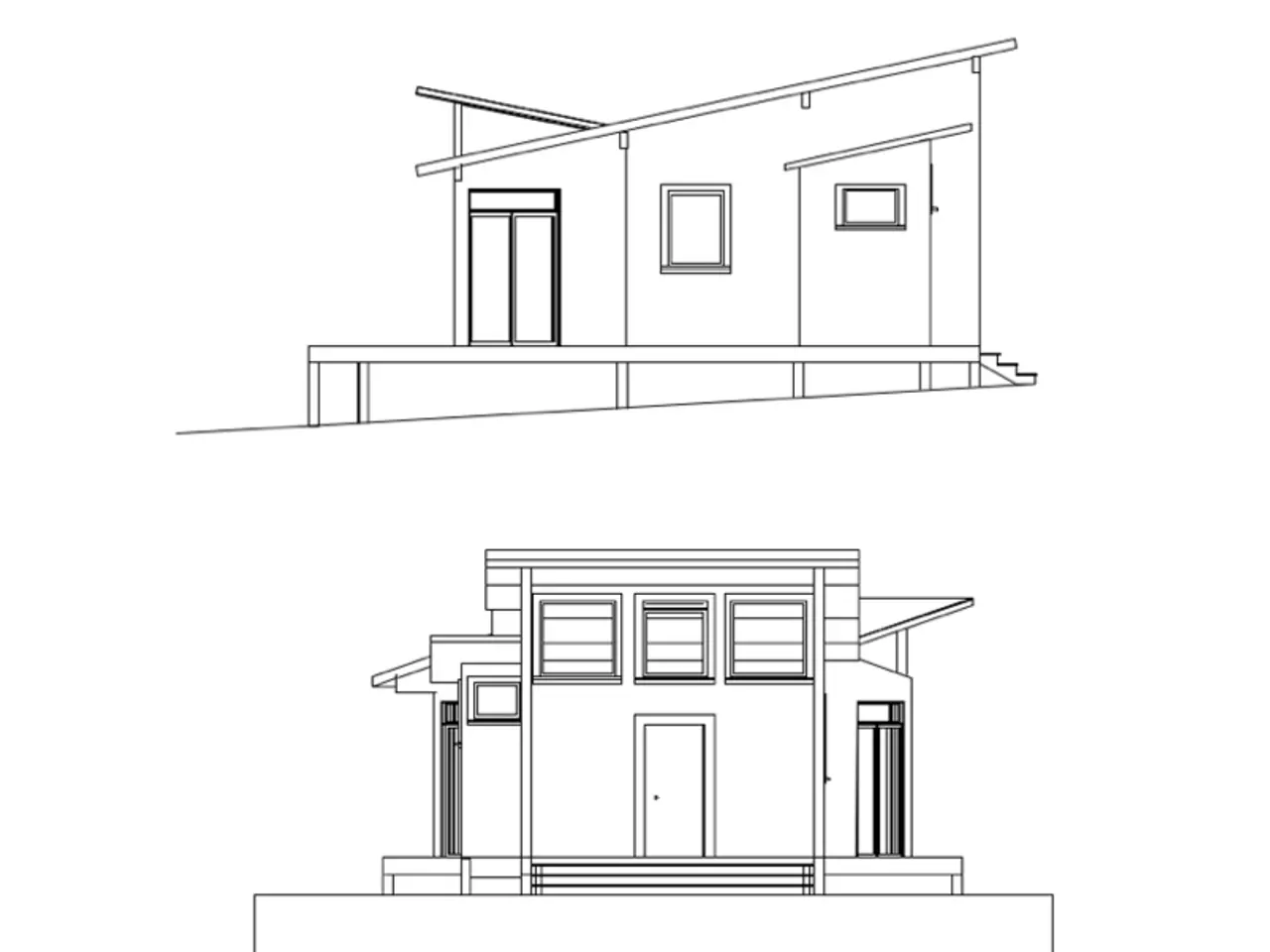building permits for new apartments on the rise: a cautious recovery in germany's housing sector
Rise in building permit approvals for new apartment constructions persists - Increase in approvals for new residential construction projects persists
Turns out, the construction sector in Germany is slowly but steadily recovering, particularly for new apartments. Here's the skinny on it.
In recent months, building permits for new apartments have seen a steady increase. These numbers jumped 4.9% in April 2025, marking the second month in a row of growth after a 5.8% rise in March. Although it might not seem like a lot, it's a positive trend, indicating that the housing construction market could be on the mend after hitting a rough patch.
But here's the catch: despite these recent increases, the total number of building permits issued for dwellings has dropped by a whopping 18.9% during the first 11 months of 2024 compared to the previous year. This decline has contributed to a 4.9% dip in residential construction spending in 2024.
Naturally, these slow permits issuance rates have left housing shortages lingering, with experts urging for accelerated construction to meet demand.
So, what's causing this sluggish recovery? Well, it seems that high financing costs, geopolitical uncertainties, and persistently high building and borrowing costs are among the main culprits. Not to mention, affording a new place to live remains a significant challenge, with house prices continuing to rise despite lower interest rates and increased incomes.
To address these supply bottlenecks, the German government is rolling out regulatory reforms. Their plan includes cutting red tape, making it easier for municipalities to approve building permits, and empowering them to encourage new-home construction and expansions.
Now, here's where Sebastian Dullien, scientific director of the Institute for Macroeconomics and Conjuncture Research (IMK) at the Hans Böckler Foundation, comes in. Even though the search results don't specifically quote Dullien, the general expert analysis aligns with his perspectives on the macroeconomic challenges facing construction in Germany. The housing shortage persists due to a mismatch between demand and the slow issuance of building permits, coupled with economic headwinds and regulatory constraints, according to Dullien. The slow recovery in permits issuance underscores structural issues in the supply side of the housing market, which experts like Dullien highlight as critical to resolving Germany's housing crisis.
In summary, building permits for new apartments are showing early signs of recovery in 2025, albeit at a cautious pace limited by various factors. Government measures to streamline construction approvals aim to accelerate building, but even with these efforts, supply constraints and affordability challenges mean the housing shortage will continue for some time. Overall, construction spending and housing permits are projected to grow slowly but steadily through 2026, offering a modicum of optimism for the future of Germany's housing sector.
The cautious recovery in Germany's housing sector, as indicated by the increase in building permits for new apartments, is planned to be facilitated by regulatory reforms that aim to cut red tape, encourage municipalities to approve construction permits, and provide incentives for new-home construction and expansions. To meet the ongoing demand, the slow issuance of building permits needs to be addressed, considering the macroeconomic challenges, such as high financing costs, geopolitical uncertainties, and regulatory constraints, highlighted by experts like Sebastian Dullien. Therefore, vocational training programs for skilled workers in the construction industry could play a crucial role in expediting the housing development process and, ultimately, in streamlining the recovery of Germany's housing sector, particularly through vocational training in financing, business management, and construction-related fields.






